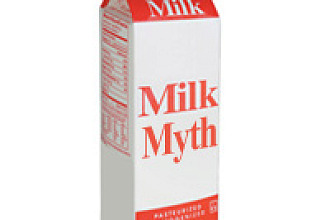God Blessed Jacob:
Even as Jacob was running from fear of his brother, and the shame of deceiving his father, under the pretext of finding a wife, God came to him in a dream and gave him some wonderful assurances and promises of His love and care for him. While Jacob was still a sinner God first loved him. God first sought out Jacob. God does that for you and me as well.
Jacob’s response:
Jacob was awed by the dream and right away knew it was from God. Out of appreciation for God’s acceptance and love Jacob made some vows to serve God. One of them pertained to Jacob’s finances, returning a tithe, or ten percent back to God.
Biblical principle:
Where did Jacob come up with that percent? What caused him to so spontaneously mention that as one of the demonstrations of his acknowledgement that God was Lord over his life? It goes back at least to his grandfather, and most likely back to the beginning of time.
Jacob’s grandfather, Abraham, practiced this same commitment as recorded in Genesis 14:20.
We see this principle of God claiming certain things for himself as a test of our loyalty and obedience going back to the Garden of Eden. God distinguished certain items (fruit from the tree of the knowledge of good and evil) while within their reach, within “their” garden, that were to be off limits to them. Similarly, the first ten percent of all our increase that comes into our hands is under our management, but it is not really ours, it is God’s and it is not to be “eaten,” or used by us. To use it for ourselves is to know selfishness, greed, theft, or lack of faith.
The Bible even refers to using the tithe for ourselves as stealing from God. “…you have robbed Me… In tithes & offerings.” Malachi 3:8.
Is God selfish that He reserves a portion for Himself, especially the first portion? No. Everything God does is out of love for us and for our benefit. He does not need our tithe, but we need to be freed of self will to provide for ourselves, of the independence to decide everything for ourselves, of the selfish, greedy, fearful hearts we are born with. One of the ways God guides us away from those traits is by showing us how ingrained our self-preservation is (and there is no better way to do that than by asking us to let go of what is in our possession), and by creating ways that we trust Him (and there is no better way of doing that then by having us get by on what seems to be less).
Tithes and offerings:
The Bible delineates differences between tithes and offerings. Tithe, the top ten percent of our increase, is God’s – “All the tithe… is the Lord’s. It is Holy to the Lord.” Leviticus 27:30. Returning to Him what is His only shows we are honest, just as if you bought a house and the previous owner left his phone there. By returning his phone you are not being generous, you are just being honest.
The tithe is also distinguished specifically for the support of the ministers (in Biblical times, the Levites).
Offerings are whatever percentage we decide to give to God’s service after we have returned God’s tithe. This demonstrates our thankfulness to God for what He has done in our lives, and shows how much we want others to also benefit from His great love.
The offerings are used for all the means used for sharing God’s love with others. That would include the upkeep of the buildings where we meet to worship God, and to where we invite others to come and hear about Him, as well as all the expenses of getting the word out to those who don’t know him. The wide array of how that is done is endless, from having lights and A/C in the building to making it comfortable, to food or clothing to those in need, to literature, music, internet, videos, etc. etc. etc. all of which have costs, most having major costs.
Wonderful Promises:
If we allow God to cleanse our hearts of our natural inclination to be selfish and fearful, and if we allow God to fill us with His faithful and generous heart which causes us to gladly and obediently return to God what is His, and to use what is ours for the benefit of others, then He promises amazing blessings beyond what we could produce ourselves. And others are blessed in the process and there will be more people in the kingdom of heaven as a result.
God’s plan is really a great plan and is best for everyone.
More:
In this week’s sermon Rabbi Jeff Zaremsky goes into more examples, illustrations, and Bible texts than we were able to do in this article. Join us by watching this sermon and by entering into the joy of the Lord.
Come along for the Adventure, you will stay for the Shalom – ShalomAdventure.com.
You can view all of Shalom Adventure videos at ShalomAdventure.lightcast.com.

























